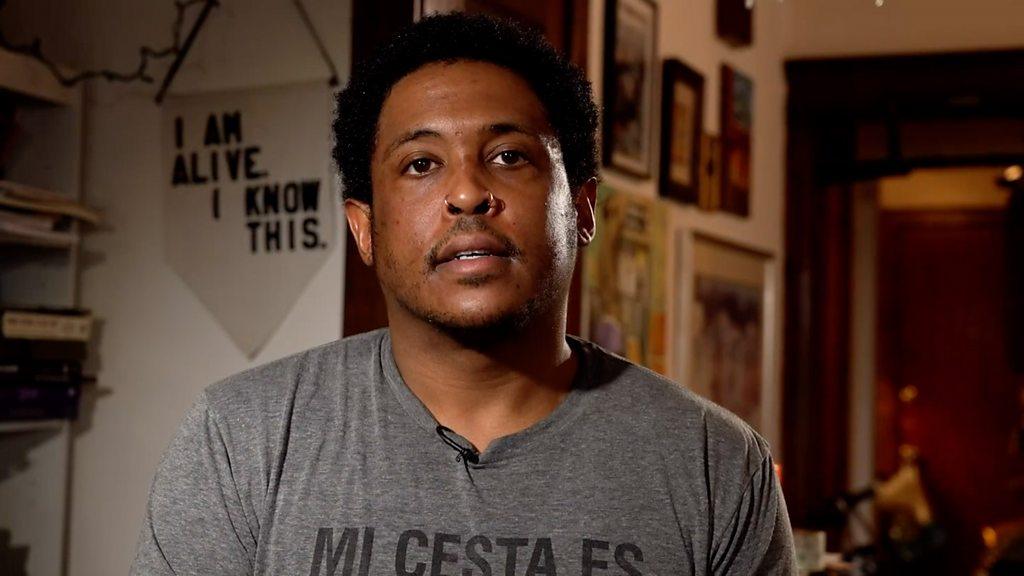George Floyd death: Ex-officer Chauvin will not take the stand
- Published
Watch: Derek Chauvin makes the decision not to testify
The ex-officer accused of killing George Floyd says he will not testify on his own behalf as the defence rests their case and court is adjourned.
Derek Chauvin denies killing Mr Floyd. Jurors are due to begin deliberating his fate on Monday morning.
Video of Mr Chauvin kneeling on the neck of Mr Floyd led to worldwide protests against racism and policing.
Tensions in Minneapolis are running high after an unrelated police shooting of a black man in a nearby suburb.
Experts say it would be unusual for a suspect to take the stand in their own defence during a trial.
Before the jury was brought into the courtroom on Thursday, Mr Chauvin was asked a series of questions about his decision not to testify.
His defence lawyer, Eric Nelson, began by asking whether he and Mr Chauvin had previously discussed his decision.
"Correct," Mr Chauvin said several times.
"To say we've gone kind of back and forth on the matter is kind of understatement, isn't that right?" asked Mr Nelson.
"Yes it is," Mr Chauvin responded, as they both briefly smiled.
"I will invoke my Fifth Amendment privilege today," Mr Chauvin then told the court, referring to the constitutional right to stay silent in fear of self-incrimination.
Asked by the judge whether this was his decision alone, and whether anyone else had unfairly influenced his decision, Mr Chauvin responded: "No promises or threats, your honour."
After prosecutors recalled an earlier witness - Dr Martin Tobin, who disputed the notion that Mr Floyd died of carbon monoxide poisoning - the judge adjourned the court until Monday.
What happens next?
The defence rested on Thursday, setting the stage for closing arguments from each side to happen on Monday.
Once the state and Mr Chauvin's defence have presented their closing arguments, the judge will send the jury into sequestration.
"Expect that when you report for duty on Monday that it will be followed by sequestration," Judge Peter Cahill told the jury this week. "So pack your bag."
While sequestered, the jury will be kept in a private location - typically a hotel - and must rely on their own memories of the lawyer's arguments and witness testimonies to render their verdict. They are given computers that contain all of the video and audio evidence that has been heard in court.
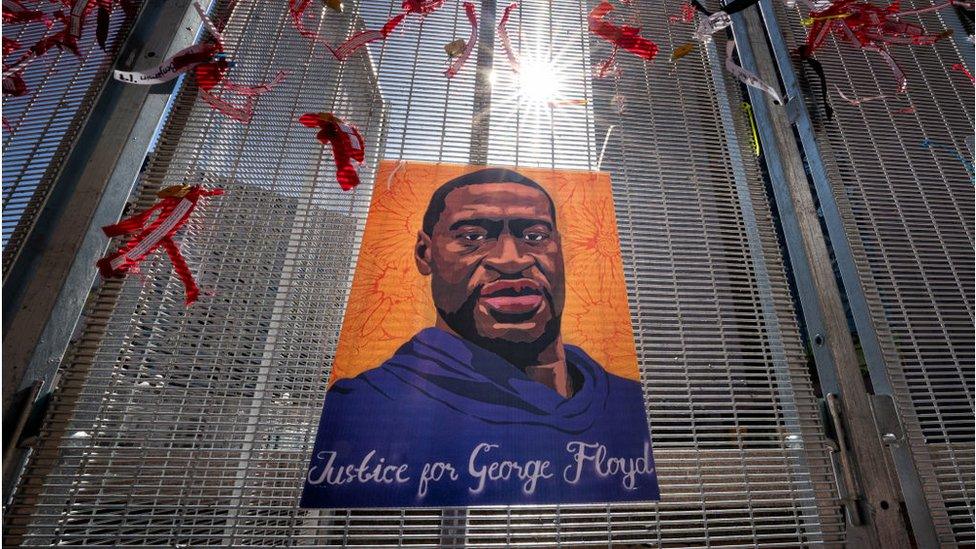
Metal fencing and razor wire have gone up around the Hennepin County courthouse
The jury has been only partially sequestered until now.
They are allowed to return home every night but are escorted into the courthouse everyday from a secure location. They are forbidden from reading media reports about the case, and every move they make inside the courthouse is watched by a bailiff.
On Monday, Mr Chauvin's lawyer argued that unrest over the shooting of Duante Wright in the nearby suburb of Brooklyn Center just 10 miles (16km) from the courthouse should trigger full sequestration during the final week of arguments.
But the judge disagreed, saying "this is a totally different case".
What does the jury have to decide?
All 12 jurors must agree to Mr Chauvin's guilt in order for him to be convicted. There are three separate charges that they must consider.
Second-degree murder - This is the most serious charge. It will require prosecutors to prove that Mr Chauvin was assaulting Mr Floyd when he caused his death. Mr Chauvin could face up to 40 years in jail if convicted on this count.
Third-degree murder - To convict on this charge, the jury must be convinced that Mr Chauvin showed a reckless disregard for human life. The charge carries a maximum sentence of 25 years.
Second-degree manslaughter - For the final charge, prosecutors will try to demonstrate that Mr Chauvin took an "unreasonable risk" when he restrained Mr Floyd, putting him at risk of death or serious harm.
With the manslaughter charge, prosecutors do not need prove he actually caused Mr Floyd's death. Someone found guilty of this charge may be sentenced to up to 10 years in jail.
It's unknown how long jury deliberation may last. Experts say it could be brief - as little as one hour - or it could take weeks.
Judge Cahill has said that if verdict comes late in the day, the result will be announced the following morning.
What do we know about the jury?
Fourteen jurors have sat in the courtroom over the past three weeks. They are never shown on camera and must remain anonymous for their own safety and privacy.
Selecting them was no easy feat due to the high-profile nature of the case. Over 11 days of jury summons, lawyers for both sides settled on a panel that skews younger, more white and more female.
It also includes a black grandmother in her 60s who once lived a few blocks from where Mr Floyd died.
Another juror, a white woman in her 50s, worked at a suburban business damaged last summer after Mr Floyd's death.
And a black man in his 40s was added to the jury after he agreed that minorities are mistreated by the police, but police departments should not under any circumstances be defunded.
At least one of them lives in Brooklyn Center, the suburb that has seen police deploy tear gas after protesters took to the streets following the death of Mr Wright, who was allegedly shot after the officer mistook her gun for her Taser.

What questions do you have about the Derek Chauvin trial?
In some cases your question will be published, displaying your name, age and location as you provide it, unless you state otherwise. Your contact details will never be published. Please ensure you have read our terms & conditions and privacy policy.
Use this form to ask your question:
If you are reading this page and can't see the form you will need to visit the mobile version of the BBC website to submit your question or send them via email to YourQuestions@bbc.co.uk, external. Please include your name, age and location with any question you send in.
Related topics
- Published13 April 2021
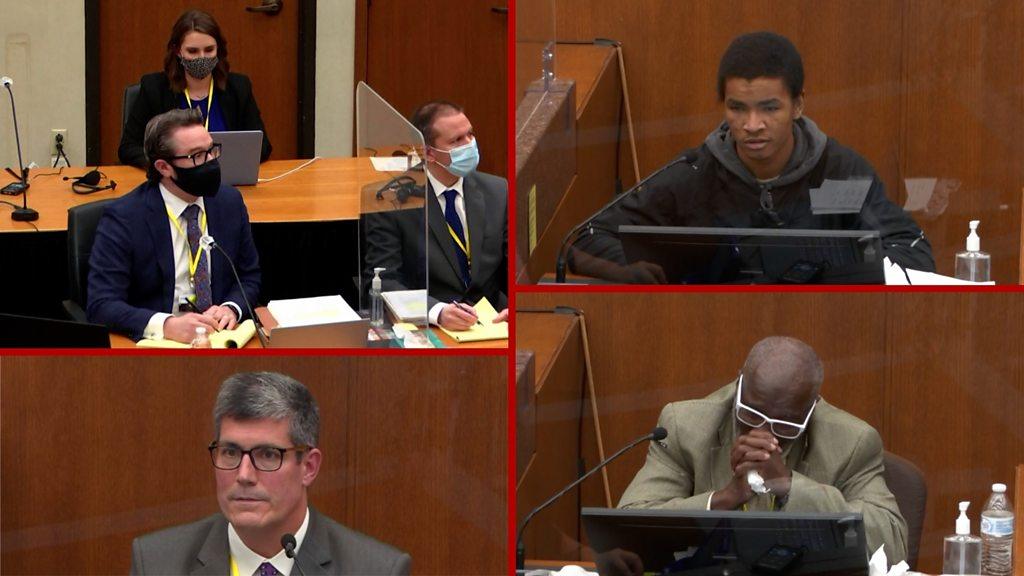
- Published30 March 2021
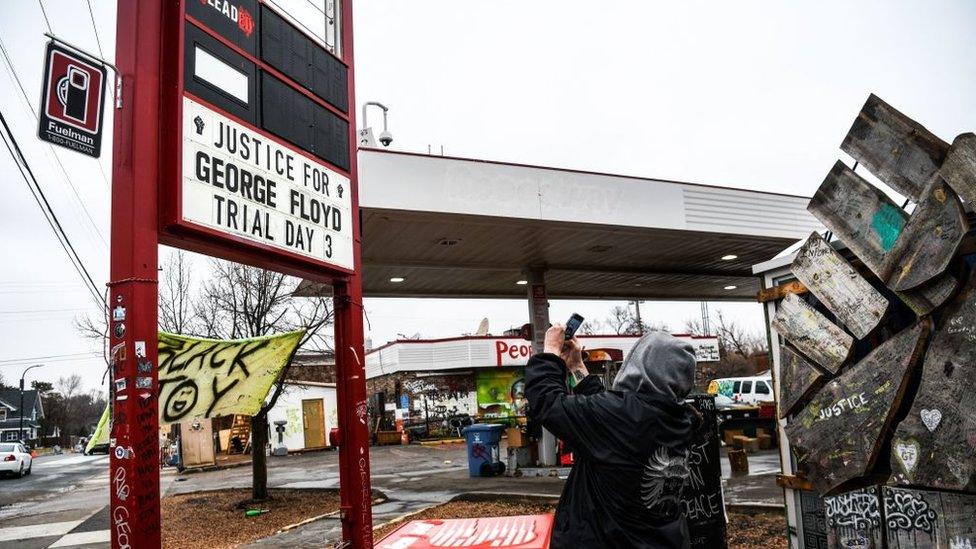
- Published18 April 2021
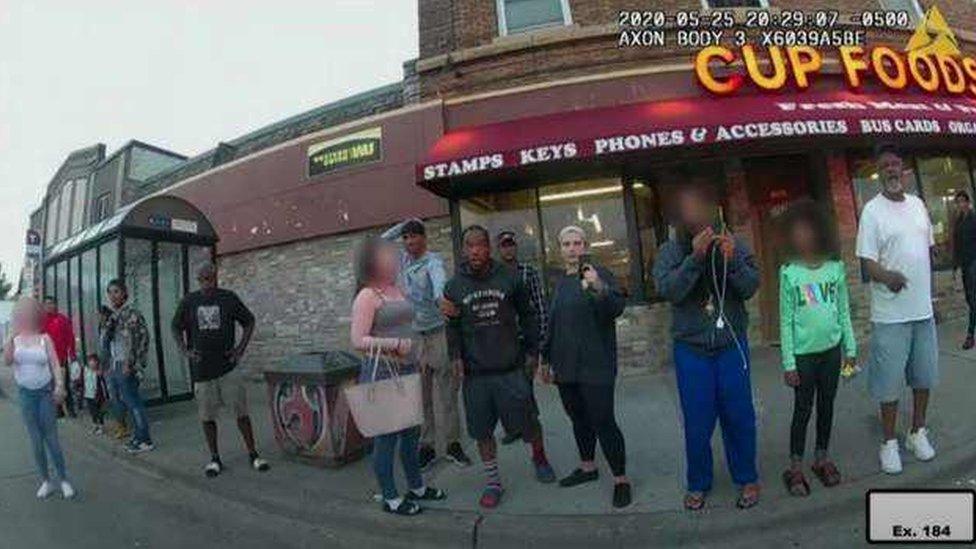
- Published9 April 2021
